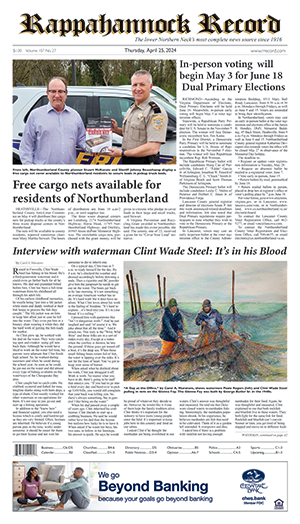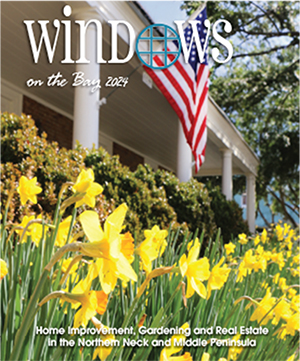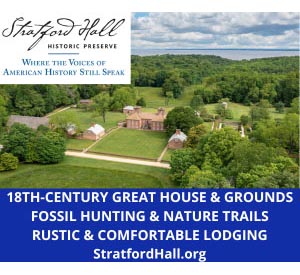Several students and a guest speaker participated in the recent Seacamp Symposium at Chesapeake Academy.
“Because it matters,” is the answer Chesapeake Academy assistant head of school Julie Keesee offers when asked about the amount of student time and intensive research that go into the Seacamp Symposium presentations on the comparative field study between the Chesapeake Bay and the Florida Keys.
“It is not enough to take a stand for the bay…or for our fishing industries or the recreational boating industry or for promoting strong economic returns from our waters. Effective and lasting solutions can only be crafted by people with a deep understanding of the components of complex problems who are able to collaborate and continue to collaborate to accomplish a goal,” said Keesee.
“The best strategies will be formed by understanding competing points of view deeply,” she continued. “Preserving the Chesapeake Bay is just the sort of world challenge our students will inherit. Chesapeake Academy students are learning to investigate and unravel an intricate web of cause an effect and be patient and persistent with complicated issues that fail to present simple solutions.”
“Citizen science mattered to former head of school Henry Selby when he started the trip in 1992 with a passion for preserving delicate marine ecosystems, and it mattered to Doc Hunter who spent years developing the marine science thread at Chesapeake Academy, and it matters even more now,” said science teacher Robin Blake.
“Rigor, persistence, and great coaching from our teachers can transform concern into educated advocacy. We prepared for a long time. And Seacamp staff really worked with each of our research teams to deepen understanding on their topics and to focus our students on the best courses of research,” said Blake. “Our scholarship needs to be top notch because that is what prepares our students to tackle complex problems of all sorts. It is Chesapeake Academy’s mission. And we hope that this training in critical thinking and problem solving will set future generations up to do a better job of advocating for our waterways than we have done.”
Richard Moncure, river steward for the Friends of the Rappahannock addressed the Seacamp Symposium presenters and their guests with tales of his own travels in Zambia in the Peace Corps where he worked with local farmers to set up aquaculture systems to grow tilapia, providing income to stabilize the community culture and economy. Moncure advised students to be “all in” their inquiries, to commit totally to what they are learning, and to know they have the power to make a real impact in their communities.
The Seacamp Symposium presenters broke into 11 team presentations showcasing student research and demonstrating exceptional scholarship.
Jack Porter and Elizabeth Stanley presented “It’s a Win Win… Maybe,” exploring how symbiotic relationships affect species in different ecosystems changing the way the organisms live together.
Duke Wolfson and Mani Webster presented “Coral Vs Wetlands: Which One Will Be Better?,” exploring whether coral or wetlands are the best at protecting juvenile fish.
Adair Stanley and Eden Stander presented “Conservation Station,” exploring conservation awareness provides people roles they can play to improve the area.
Larkin Denton and Rebecca Meberg presented “Toxic Water,” exploring specific actions that need to be taken in our local waters before it is too late to save the ecosystem.
Orie Bullard and Jordan Abbott presented “Erosion Buffers (Marshes vs Mangroves),” exploring the role of marshes and mangroves to control erosion.
Philip Haynie and Abby Souders presented “Algal Bloom Doom,” exploring nutrient water pollution’s impact on marine ecosystems.
Mary Esten Brown and Michael Branson presented “Everglades Explorations,” exploring how wetlands serve as a crucial lifeline for hundreds of species.
Faith Hattersley and Alvina Moon presented “Succession Under the Sea,” exploring how succession balances an ecosystem.
Rock Wolfson and Sadie Hassman presented “Keys to the System,” exploring the role of keystone species in the Florida Keys and the Chesapeake Bay
Ashton Hollingsworth and Reese Bragg presented “Invaders of Opposing Species,” exploring invasive species in the Florida Keys and the Chesapeake Bay.
Ben Antonio and Emma Smith presented “Disaster Strikes” outlining how natural and biological hazards differ in the Florida Keys and the Chesapeake Bay.
To conclude the symposium, presenters led the audience in a Jeopardy game that reviewed information in a lively competition.
“I am so proud of our students and of their teacher Robin Blake who coached our students to meet a very high standard,” said head of school Debbie Cook. “This initiative took outstanding leadership, organization, coaching, and personal commitment to develop this scholarship in middle school students. Mrs. Blake coordinated a team of teachers to help our students meet the mark, and the results really showed.”












